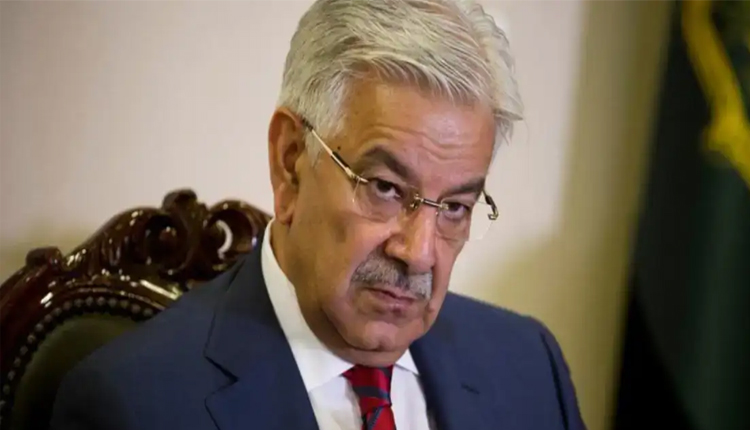Lahore: Pakistan has a history of links to terrorist organisations: Khawaja Asif, Pakistan’s Defence Minister, created quite an issue after how he admitted on one of the national televisions that they contributed and still have a history of linking to it, but he briefly claimed it to be part of the history and related it to how the U.S. was directly involved in the Afghan-Soviet War and terrorism was being fuelled. In an interview with BBC News, Asif deflected blame, saying that no such groups, like Jaish-e-Mohammed and Lashkar-e-Taiba, which are infamous for attacks on India, operate in Pakistan anymore. But they also reflect a country still struggling with its difficult relationship with militancy.
Asif was quizzed by BBC correspondent Azade Moshiri on whether terrorist organisations are still active in Pakistan. This is especially in the cases of both the Pulwama and Uri attacks. He insisted, saying, ”Terrorism and terrorists belong to history. However, he blamed the U.S. for that, asserting that Jaish and Lashkar derive from mujahideen groups which the Americans armed in the 1980s to oppose the Soviet forces in Afghanistan. Those groups were worked with by America, says he; Pakistan was just a transit country for American interests.
Elaborating on the link, Asif also mentioned that the Haqqani Network, which had earlier been associated with the Taliban, Jaish and Lashkar, was one of the groups supported. Perhaps for decades Pakistan did what the USA wanted to do, arming these fighters,” said Donald Trump. “Those groups have been ‘dry-cleaned’ now, but our image has not.” Khattak alleged that Pakistan had been labelled as a terrorism hub by the U.S. without him committing a crime.
The minister sparked controversy over his suggestion that terrorism itself was a misnomer. “Who decides who is a terrorist — you, me or them?” He asked why, underlining his assertion that leaders of such groups who survived attacks are no longer plotting in Pakistan, India or elsewhere. Scepticism surrounds his efforts to distance Pakistan from its militant past as he shifts militancy responsibility to Central Asia. This is particularly after India took action against terrorist bases across the border in ‘Operation Sindoor’.
Buried within the deflection was more than a suggestion of the challenge Pakistan faces to shed its safe haven for extremists image and Asif’s admission. As he describes the reformed Pakistan, history hangs over him and leads onlookers to wonder how definitive a split Pakistan has made with its militants. His words are, for now, a reminder of the complexities of geopolitics and responsibility that still command the challenge of security in the region.



Comments are closed.